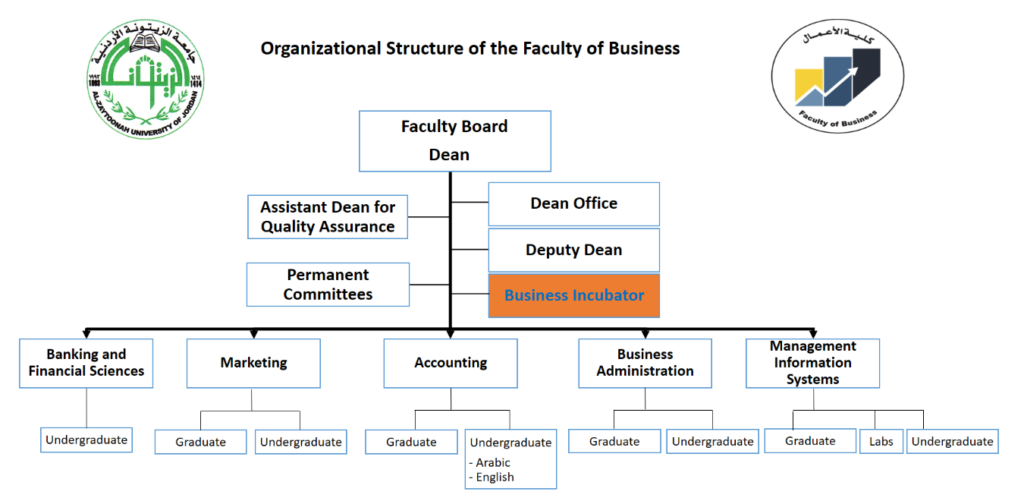Introduction
Entrepreneurship, creativity and innovation are terms increasingly associated with academic and economic developments at the local, regional and international levels in various sectors, including the higher education sector. These concepts are considered among the preeminent means that effectively contribute to solving the most important problems of poverty and unemployment facing societies and governments, especially among young people and graduates of higher education institutions. The number of graduates from private and public Jordanian higher education institutions reaches more than 85,000 graduates annually. The reality is that the Jordanian labor market cannot secure and create job opportunities for these large and steadily increasing numbers. The labor market is weak in creating new job opportunities, which leads to an increase in poverty and unemployment. This fact is considered one of the most important and difficult challenges facing societies and countries worldwide.
University Business Incubators can address these challenges through many methods, strategies, and tools that seek to transform university students from job seekers to job creators. Urging and guiding students to develop creative ideas and helping them to implement those ideas effectively in markets, would in turn contribute significantly and directly to solving the problems of poverty and unemployment.
Consistent with these developments, Al-Zaytoonah University, in general, and the Faculty of Business, in particular, have been promoting a culture of entrepreneurship, creativity, and innovation among students. A business incubator was established at the Faculty of Business to provide facilities, services, knowledge, and other matters related to entrepreneurship and innovation, in order to support creative students in their entrepreneurial endeavors and professional independence.
The Concept of a University Business Incubator
The “university business incubator”, can be defined as a package of programs designed to support and assist the successful development, crystallization, and application of students’ creative ideas successful, especially in the most sensitive early stages of project development and implementation. This support and assistance is provided through a set of instructions, consultations, training, and services delivered by the incubator itself or through its network of partners.
One of the most important goals of university business incubators is to motivate and embrace creative and talented students within the framework of pioneering work in all service, industrial, commercial, scientific, and technical fields. These incubators seek to transform students from “job seekers” to “job creators”, through the application of creative ideas and the development of sustainable small projects, thus achieving professional independence and creating new job opportunities.
Business incubators achieve these goals by spreading the culture of entrepreneurship, creativity, and innovation among students and making them aware of the importance of pioneering work. Students are introduced to the services provided by the incubator including: expertise, equipment, economic studies (Feasibility, Marketing, Business Plan etc.), technical, administrative, accounting and legal advice, networking with financing channels and established entrepreneurs and other related services that effectively contribute to the successful implementation of creative ideas.
Business incubators are based on three main areas:
- Building, supporting, and developing capacities,
- Networking and partnerships,
- Supporting and operating of start-up companies
Establishing a Business Incubator for the Faculty of Business at Al-Zaytoonah University of Jordan
In accordance with the Hashemite Kingdom of Jordan’s national priorities and the university’s desire to serve students and society, the idea of a business incubator came to being as a comprehensive center specialized in entrepreneurship. The business incubator of Al-Zaytoonah University of Jordan evolved from a research project, No. (22/12/2019-2020), titled “The Role of Business Incubators in Promoting Entrepreneurship in Higher Education’s Institutions” at an initial total cost of approximately 8,000 Jordanian Dinars (eight thousand), and was approved by the Deans Council decision No. (12/209-2020) on 01/24/2020.
The university allocated an office space of 40 square meters, divided into three areas, to suit the work and activities of a business incubator. The incubator was fully equipped with needed computers, printers, internet, communication devices, technological, electrical office equipment and stationary in order to be fully prepared to carry out its duties. In addition, the Dean of the Faculty of Business put the Faculty’s well-equipped laboratories at the incubator’s disposal as needed.

